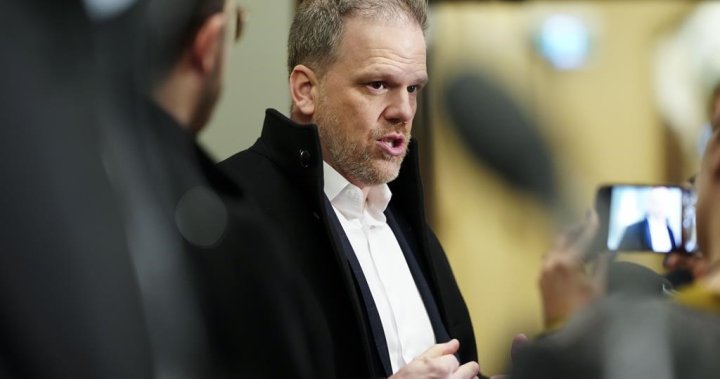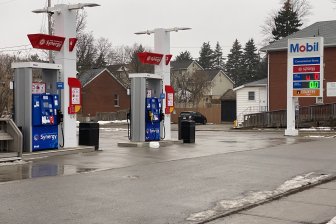Health Minister Mark Holland says the government must be respectful of “a challenging fiscal framework” where Ottawa can’t spend “an enormous amount of money” in trying to strike a deal on pharmacare.
This comes as NDP Leader Jagmeet Singh has redrawn a line in the sand in the confidence and supply agreement with the Liberals, saying if a pharmacare bill is not introduced by the March 1 deadline he considers the agreement broken.
“We can’t afford this to be a massively expensive program. We’re not in a time where the fiscal framework can absorb massive costs. And so that absolutely is a consideration,” Holland said on his way out of cabinet Tuesday.
“We’re looking at how to make drugs more affordable for Canadians and how to take definitive action, but be respectful of the challenging fiscal framework that we’re in. We’re not in a time where we can just open up and spend an enormous amount of money. So, there are points of difference on issues like that.”
The minister adds that what will ultimately be introduced at this step is framework legislation for a pharmacare program.
“I’ll make it very clear there’s three weeks left. [Prime Minister Justin Trudeau] has to deliver on this. The prime minister cannot break his promise again. The prime minister cannot fail Canadians again on this point,” Singh told reporters on Monday.
According to an estimate from the Parliamentary Budget Officer (PBO), the total federal and provincial expenditure in a universal pharmacare program would be $33.2 billion in the 2024-25 fiscal year, growing to $38.9 billion over the next four years.
Get the latest Health IQ news.
Sent to your email, every week.
A model based on Quebec’s drug plan being expanded nationally would cost the public sector $11.2 billion in 2024-25, growing to $13.4 billion in 2027-28 according to the PBO.
The PBO notes in its modeling there is no way to isolate federal spending from provincial funds.

Holland maintains he is confident that legislation will be introduced by that March 1 deadline.
“It’s going to take all of us to find a path. We’re two different parties with two different ideas of how to make this work, so it’s not easy to bring those two pieces together, but it is working well and we continue to make progress,” Holland said.
The minister declined to comment on specific issues the Liberals and NDP are at odds on, saying that negotiations are ongoing.
At a policy convention last year, the NDP voted to make the introduction of a pharmacare bill by the end of 2023 a red line on the agreement, which sees the NDP support the Liberals on confidence motions in exchange for advancing key policy positions including pharmacare.
That deadline was mutually extended to March 1 as negotiations plowed forward as Parliament rose for the winter break and no legislation was introduced back in December.
“If they break the deal, they have broken the deal. That’s what I’ve said, and I’ve said it again and again, very, very clearly. I’m being very specific when I say that if they break the deal, they have broken the deal,” Singh said Monday.
Holland said that there are options the government can look at to reduce the cost of drugs for Canadians that won’t necessarily drive up the cost of the eventual program, such as bulk purchasing.
© 2024 Global News, a division of Corus Entertainment Inc.




